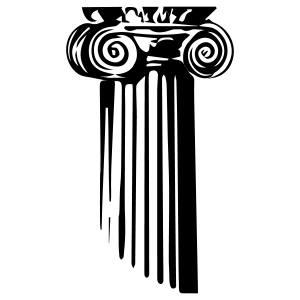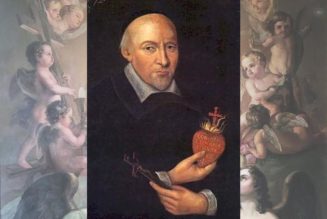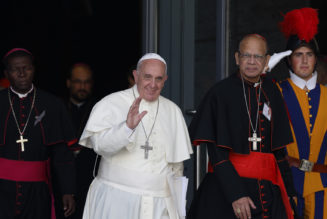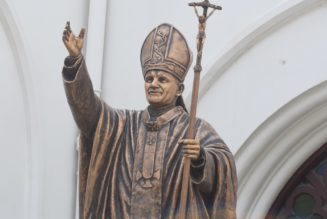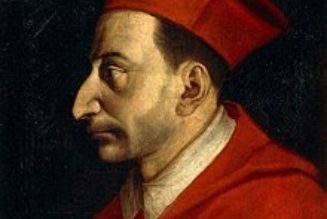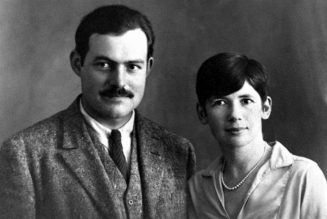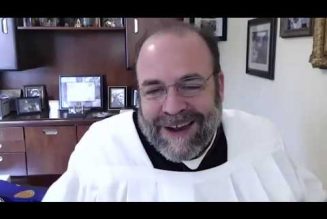Happy Tuesday friends,
Ed Condon here.
I’m sorry to say that JD is very much under the weather this week and unable to join us for his usual Tuesday newsletter. So, I am afraid you are getting me again. So far as I am aware, he’s not got the virus, but has managed to pick up something rather nasty, so please do pray for his speedy recovery.
I am aware, of course, that JD and I strike different tones in these newsletters, and that the prospect of back-to-back servings of my flavor might feel a little, well, medicinal.
So, in JD’s honor and for your edification, I promise to be relentlessly upbeat in this edition of The Pillar Post. If in doubt, I will salt my sentences with some errant exclamation marks to let you know I am being enthusiastic, not cynical about things.
Alright then, let’s head to the news!
Mad rhymes
This morning, the daily bollettino of Holy See Press Office included some news for New York, with the announcement that Pope Francis has appointed two new auxiliary bishops for the archdiocese, both native sons of the city.
Both are priests currently serving as pastors in the archdiocese:
Msgr. John Bonnici is a NAC graduate with a doctorate from the Pontifical John Paul II Institute for the Sciences of Marriage and the Family, and has previously served as both an adjunct seminary professor and director of the archdiocesan pro-life office.
Msgr. Joseph Espaillat was an undergrad at Fordham in the Bronx, or, as they call it in Rome, il Bronx, where he is currently the pastor of St. Anthony parish, as well as the archdiocese’s director for Hispanic Charismatic Renewal.
He’s previously served as New York’s director of youth ministry as well, and I suspect it was in that role honed his skills on the mic which, friends tell me, are legendary among the local clergy. I had a look and, well, the guy does appear to have mad rhymes.
I am impressed.
Benedict’s ‘error’
The independent inquiry’s report was published last week, and named a handful of cases in which the former pope could be “accused of misconduct” for the way things were handled when he led the archdiocese.
In one of these cases, a priest accused of sexually abusing a young boy in another diocese was moved to Munich in 1980, while Joseph Ratzinger was archbishop, to undergo psychological therapy. He was not given any pastoral assignment, or allowed into ministry, until one day, a few years later, he was — he went on to abuse again.
The substance of Benedict’s “error,” for which he offered his full apologies, was this: he had previously told the law firm conducting the investigation (which covered the years 1945-2019) that he was not not present at a meeting to discuss this priest’s arrival in the archdiocese. But he was present at the meeting.
There was no discussion at the meeting of giving this priest any ministerial assignment, and the former vicar general of the archdiocese has already taken personal responsibility for that decision.
Now, it’s easy to see how a 94-year-old could, more than 40 years after the event, not recall the details of a meeting. But, at least in my opinion, the details of what Benedict got right or wrong in his recollections are beside the point.
Yesterday, I wrote an analysis about how the actions of Archbishop Ratzinger as head of the Munich archdiocese are, it seems, of a piece with the way these cases were handled at the time by most bishops across the West.
That is not an exculpation of the pope emeritus. If anything it’s a damning indictment. Untold harm was done to untold numbers of minors by serial abusers who, as in the Munich case, had their abhorrent crimes medicalized and were sent for “therapy” before they were “cured” and allowed back into ministry to abuse again and again.
The question, it seems to me, is not whether Benedict’s handling of the cases identified in the Munich report is defensible — it isn’t.
The question is this: What have we learned since then?
You can read the whole thing here.
Knightfall
We’ve reported a lot on a Vatican draft of a new constitution for the knights, one which is being discussed by a joint Holy See – SMOM constitutional committee during a two-day session in Rome which kicked off today. The biggest headline so far has been plans to make the order an explicit subject of the Vatican, a move which would have serious consequences for the order’s status in international law, and by implication for the Holy See itself, which has the same legal status.
What we covered yesterday is the divide in the order about its own future which has caused this whole mess, and prompted the Vatican to intervene in the first place.
The knights are divided among themselves about the future role of the first class knights, the professed religious who make vows of poverty, chastity, and obedience, and who have traditionally (and legally) made up the senior leadership of the order.
As a Catholic religious order, the spiritual life of these knights comes under the authority of the Vatican, even while the internal governance of the order and its international actions are meant to be wholly independent.
In the light of dwindling numbers and advancing age among the professed knights, some in the order want to see the leadership opened up more to knights of other ranks. Others insist that having the knights at the head of everything is the only real guarantee of the order’s Catholic identity.
You can read about the pros and cons of both arguments here.
What is interesting is, even if the Holy See means it when it says it has no intention of interfering in the order’s sovereignty, the pope’s special delegate, Cardinal Tomasi, looks set to use his authority to force through a reform for the professed knights — at which point, they aren’t sovereign, whatever both sides agree to say on paper.
This leaves the knights in a cleft stick: they can either accept a Vatican-imposed reform out of religious deference to the pope, or stand on their legal sovereignty.
As one senior knight put it to me the other day: “The choice being forced on us is between our Catholic identity and diplomatic independence.”
It’s not a great situation, and it’s not looking good. We’ll continue to bring you the news as it happens.
Another day in court
On Friday, we reported that a former campus minister at Franciscan University of Steubenville is facing trial on rape charges.
There was a chance Morrier was going to agree a plea deal with prosecutors yesterday, but instead, according to the judge’s office, a continuance in his case was granted until the middle of March — so the legal process is ongoing.
The reason we are following the case is not because every time a priest winds up in court we feel compelled to pour over the details — we don’t find these things any more edifying than you do. But this case raises real questions about who knew what, when, and what was done about it.
While the priest was moved off the Ohio campus in 2014 and reassigned to a Texas parish, the Franciscan province said in April last year that Morrier was removed by provincial leadership from ministry in 2015 because of allegations of “sexual misconduct.” The local diocese says it was notified of the allegation by the alleged victim in November 2018, and immediately contacted law enforcement.
It’s not clear who, if anyone, was aware of the allegations against Morrier at the time of his assignment in 2014, or if it was just coincidence that he was moved at that time.
But when Franciscan University of Steubenville leadership said Morrier was removed from his ministry position and banned from campus, it’s not clear whether they mean that happened — or why their statement to that effect is no longer available on the university’s website.
But if he was reassigned to a Texas parish while university or provincial officials were aware of allegations that he had sexually assaulted a student, that raises some serious questions about whether officials sufficiently discharged their canonical oversight obligations.
We will keep following the case and see what we find out.
In the meantime, you can get up to speed here.
A question of life and death
A lot of eyes are on Ukraine right now, with the possibility of something between a full blown Russian invasion or a “minor incursion,” whatever that is, on many people’s minds.
Pope Francis has declared tomorrow to be a day of prayer for peace in the Ukraine, and the five U.S. bishops of the Ukrainian Greek Catholic Church have issued their own letter expressing their deep concerns.
“This is a question of life and death, as nostalgia for an empire lost has led to senseless slaughter and immense suffering throughout Ukraine,” they said.
As all this is going on, there has of late, been a steady drumbeat along some sections of the media class in the U.S., with talking heads of various sizes asking, sometimes implicitly sometimes explicitly, why our sympathies and loyalties should reflexively lie with Ukraine in all of this instead of Russia.
Some of the Catholic “public intellectual” class have made similar noises over the last few weeks and months, too. A lot of this has to do with a nascent debate about ideas of philosophical and political liberalism, and the relative value of free press, freedom of religion and so on, versus a growing fascination, among some, with a more… robust form of government.
Archbishop Gudziak offered some perspective on this conversation:
“It’s easy to think through some of these issues when the alternative to liberalism is a gun barrel pointed at your head,” he told us.
“I find it flabbergasting to see conservative Catholics look to Putin or to Russia as a bastion of traditional values. Russia has the highest abortion rate in the world. Russia has an astronomical alcoholism rate. The suicides are among the highest, and so is the degree of corruption.
Corruption of political lies and evil is in the fabric of society, at all levels.
How this kind of regime that crushes human dignity, that poisons dissidents, or has them shot in the capital of the country —How this can be a source of interest and hope or inspiration for people with traditional Christian values is completely beyond me.”
So, as my Grandma would say, there’s that.
If you missed it the first time around, you can read the whole interview here.
Anyway, pray for Ukraine.
See you Friday,
Ed. Condon
Editor
The Pillar
Join Our Telegram Group : Salvation & Prosperity

